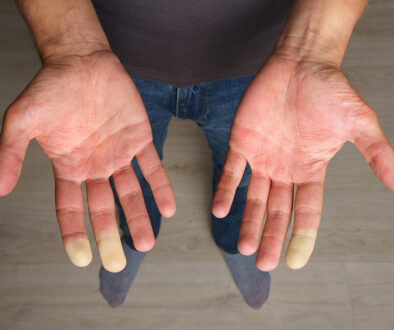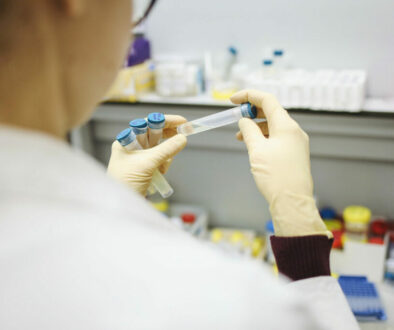Signs of Menopause: What to Expect and How to Manage Them
Every year, 1.3 million American women experience menopause, which typically occurs between ages 51 and 52. Around 75 % of women experience vasomotor symptoms of menopause, such as hot flashes, night sweats and even migraines.
But menopausal symptoms are not limited to these vasomotor symptoms. It’s also possible for women to develop urogenital and psychogenic symptoms as well.
As internal medicine doctors in Raleigh, we want to care for you through every stage in your life. We know that there are a lot of questions and concerns surrounding menopause, and we’ll examine these urogenital and psychogenic symptoms as well as outline how to manage them.
What is the Average Age of Menopause?
Typically, you’re in menopause if you’ve not had a period for 12 months and there is no other cause for the missed cycles.
We’re often asked, “when does menopause start?” The median age of menopause is 51. However, around 5 % of women may have early menopause, which is defined as menopause starting between the ages of 40 and 45.
There is also a transitional phase called perimenopause that happens around the age of 45 where the ovaries produce fewer hormones. This means the levels of estrogen, progesterone and testosterone fluctuate.
During perimenopause, you may have noticed a change in your periods. Often, they will be lighter with more time between them.
Another 1 % of women develop premature menopause, which is defined as menopause before the age of 40. This may be due to a complete hysterectomy where the ovaries are removed, issues with sexual hormones, or permanent ovarian failure. It can also be caused by chemotherapy or radiation treatment.
What Are the Urogenital Symptoms of Menopause?
These symptoms are experienced by an estimated 60% of menopausal women. These include a decline in the libido as well as vaginal and urethral atrophy.
Vaginal atrophy can cause:
- Painful intercourse (called dyspareunia)
- Vaginal dryness
- Pruritus (chronic itching)
Urethral atrophy can cause:
- Incontinence
- Frequent urination
- Urgency
- Dysuria (difficult or painful urination)
What Are the Psychogenic Symptoms of Menopause?
Around 45% of all menopausal women have these symptoms, which can include:
- Difficulty concentrating/memory lapses
- Irritability
- Anxiety
- Difficulty sleeping
- Depression
Remember: any time your period stops, and you are not pregnant, you should schedule an appointment to speak with us. While this can be caused by a variety of conditions—including stress and anxiety—it’s important that we work with you to reach an accurate diagnosis and determine if you’re in early menopause.
What Are Other Common Symptoms or Signs of Menopause?
You may have heard your friends talk about hot flashes and night sweats. While these are very common among women in menopause, remember that each woman’s experience is unique to her, so be sure to schedule an appointment and speak with one of our physicians so we can develop a health care plan that will provide relief for troublesome symptoms.
Some of the most common issues surrounding menopause include:
Hot Flashes
These are very common. In fact, more than half of women experience them at some point during menopause.
Hot flashes are caused when declining estrogen levels make your body’s internal “thermometer” more sensitive to changes.
Joint Pain
Some women experience joint pain during menopause. If this is the case, please speak with us, so we can help provide treatment that will give you relief.
Menopause and Sex
For some women, menopause can represent sexual challenges. During menopause, the lining of the vagina thins, and as a result, causes vaginal dryness and irritation. This can make sex uncomfortable or painful.
There are often very simple, straightforward solutions that can help. Just don’t hesitate to talk to us.
Weight gain
While many women gain a little weight when they enter menopause, it’s not a given—diet and exercise remain just as important during this phase of a woman’s life.
If you’d like more information on how you can eat healthier at any age, we encourage you to schedule an appointment with our dietitian.
Bone loss
Menopause can place you at risk for osteoporosis, which in turn means you are much more likely to suffer serious fractures. Regular bone density screenings can help us spot any problems early, and we’re pleased to offer these screenings in our office. Just contact us for an appointment.
Hair loss or thinning hair
Headache
Racing heart
Hormonal and NonhormonalTreatment for Menopausal Symptoms
Hormonal
Treatment centers around providing your body the estrogen it has lost during menopause. There is systemic estrogen therapy and local estrogen therapy.
Systemic therapy means the estrogen is delivered throughout your entire bloodstream—usually administered as a patch or a pill.
Local estrogen therapy is delivered by vaginal tablets, cream or even rings. These release smaller doses of estrogen and are geared to only target vaginal symptoms.
Nonhormonal
Nonhormonal treatments include diet modifications, avoiding triggers to hot flashes, and exercising.
Raleigh Adult Medicine: Guiding You Through Every Stage of Life
There’s a reason we’ve been a vital part of your community for more than 20 years.
It’s a dedication to caring for our patients not only when they have problems, but when they are well—encouraging regular screenings and yearly physicals.
By being proactive, we can help you manage chronic conditions and ensure you’re living the healthiest life possible.
We would welcome the opportunity to care for you as your internal medicine doctors in Raleigh. Please contact us for an appointment.




